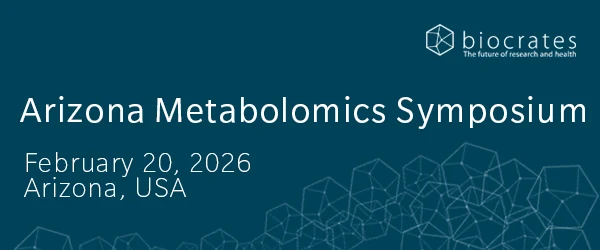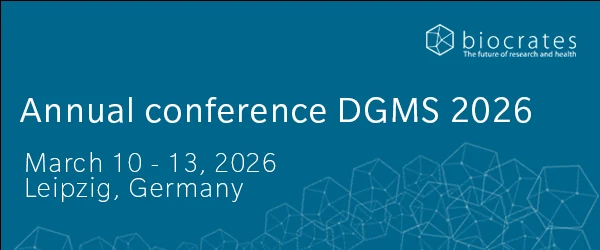Why do we need to understand the role of metabolism?
It’s well known that only 20–30 % of patients experience a long-term benefit from immunotherapy, but the high rate of adverse events in immunotherapies is also a matter of intense research and scientific debate. Biomarkers that can stratify patients and identify whether they are at risk for severe toxicities are an important medical need. Here, I make the case for metabolomics as a tool for discovering such biomarkers.
Earlier this month, Eschweiler and colleagues reported on a failed phase II trial for a phosphoinositide 3-kinase delta (PI3Kδ) inhibitor in head and neck cancer. (Eschweiler et al. 2022) The drug had previously been tested successfully for B cell lymphomas. Specifically, the authors reported severe immune-related adverse events (irAEs) in about 50 % of patients. Most of the adverse events were reported as colitis, but the lungs and skin were also affected.
Using single-cell sequencing, the authors identified specific T cell populations that were affected and suggested intermittent dosing as a potential way to reduce toxicity while retaining therapeutic response. Fewer toxicities were reported in trials for B cell lymphoma. This was attributed to the fact that the lymphoma patients had been immunocompromised through previous therapies, while the patients with head and neck tumors were treatment naïve, which allowed a stronger immune response.
While I don’t challenge those findings, I do think there’s probably more to the story. To me, a reductionist view on pharmaceutical research is problematic – we should aim to investigate comprehensively any factors that could have contributed to outcomes in clinical trials.
How does metabolism factor in here?
We know from another recent study showed that previous therapy does affect metabolism, which might affect the response to subsequent lines of therapy. (Nees et al 2022) Several other factors further convince me that this type of research calls for a metabolomics approach to be included in the investigation.
Interdependencies of metabolism and immune regulation
Immunometabolism is rapidly gaining traction as an interesting research topic. Reviewing the complex interactions between metabolism and the immune system is beyond the scope of this article, however, several recent reviews have addressed the topic. (Voss et al. 2021, Lercher et al. 2020, Traba et al. 2021) Here, we shall briefly address the role of PI3K in the regulation of metabolism and metabolic regulation of immune responses:
The role of PI3K in regulating metabolism
PI3K is a key member of the PI3K / protein kinase B (AKT) / mammalian target of rapamycin (mTOR) pathway. This pathway is involved in a huge number of cellular mechanisms, including immune regulation as well as metabolism. It’s therefore possible that endogenous and/or tumor metabolism might be involved in the effect and side effects of therapeutics targeting this pathway. For more on the interplay between PI3K and metabolism in the context of cancer, see Hoxhaj and Manning 2020. (Hoxhaj et al. 2020)
The importance of metabolism in regulating immune cell function and local immune responses
Immune cells are highly metabolically active and their function depends on systemic metabolism and nutritional status.(Alwarawrah et al. 2018) This means that if we’re looking at a therapy designed to affect immune cells, we need to know as much as possible about how metabolism determines the observed effects. At the level of specific metabolic pathways, the most well-known interaction is probably that of Tryptophan (Moffett et al. 2003, Han et al. 2021, Modoux et al. 2021, Wang et al. 2020, Gargaro et al. 2021, Kim et al. 2021, Wu et al. 2018) but it’s far from the only one that’s vital for keeping the immune system in balance.
For example, cholesterol metabolites and their main signaling routes (i.e. nuclear receptors) are also well-established in regulating T cells and other types of immune cells. (Bietz et al. 2017, Park et al. 2015, Lee et al. 2022, Bilotta et al. 2020)
Finally, it’s well known that the metabolism of immune cells is relevant to cancer biology. In this case, the tumor uses metabolic competition to dampen local immune responses, and so targeting immune cell metabolism might improve the response to immunotherapy. (Le Bourgeois et al. 2018, Shyer et al. 2020, Leone et al. 2020, Talty et al. 2021, Xia et al. 2021, Madden et al. 2021, Wei et al. 2021)
Evidence for microbiome-metabolome-immune interaction in inflammatory bowel disease and other immune-mediated diseases
Metabolism and immune metabolism are one of the major pathways through which the microbiome interacts with the host metabolism. Many therapies are known to affect the intestinal microbiota, (Forslund et al. 2021) and the role of the microbiome as a determinant of and target for improving immunotherapeutic outcomes is a matter of increasingly intense scientific inquiry. (Zhou et al. 2021, Li et al. 2021, Renga et al. 2022, Hayase et al. 2021)
For a therapy that induces adverse (auto-)immune effects in the gut, it makes sense to consider the involvement of microbial metabolism. We’ve already seen links between microbial composition and the toxicity of immunotherapies.(Andrews et al. 2021)
Several of the pathways and metabolites mentioned here have been associated with inflammatory bowel diseases, autoimmunity, and other immune-mediated diseases. (Bilotta et al. 2020, Ding et al. 2020, Haq et al 2021, Hu et al. 2021, Visekruna et al. 2021, Qiu et al. 2021, Jutley et al. 2021, Nardone et al. 2021)
Immune metabolism as predictor of response to immunotherapies in oncology
Here, I’ve discussed how metabolism shapes the interaction between the immune system and cancer. There’s also published evidence for the role of metabolism in determining the efficacy of immunotherapeutic drugs. The biomarkers described as relevant include metabolites from microbiome-associated, as well as immune modulatory pathways.(Malczewski et al. 2020, Nie et al. 2021, Hatae et al. 2020, Mock et al. 2019, Kocher et al. 2021)
Conclusion
Metabolism plays an essential role in regulating immune responses, and perturbations in immunometabolic pathways contribute to a large variety of diseases including cancer. In addition, targets in the immunotherapy of cancer are involved in cellular and immunometabolic pathways. Finally, there is growing scientific evidence that metabolomics can provide biomarkers indicative of patient outcome in immunotherapy. If we want to understand why a patient responds to immunotherapy favorably, with adverse effects, or not at all, metabolomics could be instrumental in doing so.
What do you think? Have I missed a vitally important metabolic pathway? Do you already have experience with research in immunometabolism, and/or metabolomics in the context of immunotherapies? Please share your thoughts with us and write to stefan.ledinger@biocrates.com.
For further information about how biocrates can help with biomarker research in pharmaceutical R&D, see also the article Therapy resistance: could metabolomic biomarkers remove this major roadblock to successful pharmaceutical research and development programs?
Read more about metabolomics on pharmacology
Watch webinar Advancing cancer treatment by targeting dysregulated metabolism – A roadmap (YouTube Link)
References
Alwarawrah Y. et al.: Changes in Nutritional Status Impact Immune Cell Metabolism and Function. (2018) Frontiers in Immunology | https://doi.org/10.3389/fimmu.2018.01055
Andrews M. et al.: Gut microbiota signatures are associated with toxicity to combined CTLA-4 and PD-1 blockade. (2021) Nature Medicine | https://doi.org/10.1038/s41591-021-01406-6
Bietz A. et al.: Cholesterol Metabolism in T Cells. (2017) Frontiers in Immunology | https://doi.org/10.3389/fimmu.2017.01664
Bilotta M. et al.: Liver X Receptors: Regulators of Cholesterol Metabolism, Inflammation, Autoimmunity, and Cancer. (2020) Frontiers in Immunology | https://doi.org/10.3389/fimmu.2020.584303
Ding X. et al.: Tryptophan Metabolism, Regulatory T Cells, and Inflammatory Bowel Disease: A Mini Review. (2020) Mediators of Inflammation | https://doi.org/10.1155/2020/9706140
Eschweiler S. et al.: Intermittent PI3Kδ inhibition sustains anti-tumour immunity and curbs irAEs ( 2022) Nature | https://www.nature.com/articles/s41586-022-04685-2
Forslund S. et al.: Combinatorial, additive and dose-dependent drug-microbiome associations. (2021) Nature | https://doi.org/10.1038/s41586-021-04177-9
Gargaro M. et al.: Tryptophan Metabolites at the Crossroad of Immune-Cell Interaction via the Aryl Hydrocarbon Receptor: Implications for Tumor Immunotherapy. (2021) International Journal of Molecular Science | https://doi.org/10.3390/ijms22094644
Han C. et al.: T-cell Antitumor Immunity: Amino Acid Metabolism Revisited. (2021) Cancer Immunology Research | https://doi.org/10.1158/2326-6066.CIR-21-0459
Haq S. et al.: Tryptophan-derived serotonin-kynurenine balance in immune activation and intestinal inflammation. (2021) The FASEB Journal | https://doi.org/10.1096/fj.202100702R
Hatae R. et al.: Combination of host immune metabolic biomarkers for the PD-1 blockade cancer immunotherapy. (2020) JCI Insight. | https://doi.org/10.1172/jci.insight.133501
Hayase E. et al.: Role of the intestinal microbiome and microbial-derived metabolites in immune checkpoint blockade immunotherapy of cancer. (2021) Genome Medicine | https://doi.org/10.1186/s13073-021-00923-w
Hoxhaj G. et al.: The PI3K-AKT network at the interface of oncogenic signalling and cancer metabolism. (2020) Nature Reviews Cancer. | https://doi.org10.1038/s41568-019-0216-7
Hu J. et al.: Gut microbiota-mediated secondary bile acids regulate dendritic cells to attenuate autoimmune uveitis through TGR5 signaling. (2021) Cell Reports | https://doi.org/10.1016/j.celrep.2021.109726
Jutley G. et al.: Relationship Between Inflammation and Metabolism in Patients With Newly Presenting Rheumatoid Arthritis. (2021) Frontiers in Immunology | https://doi.org/10.3389/fimmu.2021.676105
Kim M. et al.: A Rheostat of Cancer Immune Escape Mediated by Immunosuppressive Enzymes IDO1 and TDO. (2021) Frontiers in Immunology | https://doi.org/10.3389/fimmu.2021.636081
Kocher F. et al.: High indoleamine-2,3-dioxygenase 1 (IDO) activity is linked to primary resistance to immunotherapy in non-small cell lung cancer (NSCLC). (2021) Translational Lung Cancer Research | https://doi.org/10.21037/tlcr-20-380
Le Bourgeois T. et al.: Targeting T Cell Metabolism for Improvement of Cancer Immunotherapy. (2018) Frontiers in Oncology | https://doi.org/10.3389/fonc.2018.00237
Lee M. et al.: Reprogramming cholesterol metabolism in macrophages and its role in host defense against cholesterol-dependent cytolysins. (2022) Cellurar&Molecular Immunology | https://doi.org/10.1038/s41423-021-00827-0
Leone R. et al.: Metabolism of immune cells in cancer. (2020) Nature Reviews Cancer | https://doi.org/10.1038/s41568-020-0273-y
Lercher A. et al.: Systemic Immunometabolism: Challenges and Opportunities. (2020) Immunity | https://doi.org/10.1016/j.immuni.2020.08.012
Li B. et al.: Mining the Gut Microbiota for Microbial-Based Therapeutic Strategies in Cancer Immunotherapy. (2021) Frontiers in Oncology | https://doi.org/10.3389/fonc.2021.721249
Modoux M. et al.: Tryptophan Metabolism as a Pharmacological Target. (2021) Trends in Pharmacological Science | https://doi.org/10.1016/j.tips.2020.11.006
Moffett J. et al.: Tryptophan and the immune response. (2003) Immunology Cell Biology | https://doi.org/10.1046/j.1440-1711.2003.t01-1-01177.x
Madden M. et al.: The Complex Integration of T-cell Metabolism and Immunotherapy. (2021) Cancer Discovery | https://doi.org/10.1158/2159-8290.CD-20-0569
Malczewski A. et al.: Microbiome-derived metabolome as a potential predictor of response to cancer immunotherapy. (2020) Journal for Immuno Therapie for Cancer. | https://doi.org/10.1136/jitc-2020-001383
Mock A. et al.: Serum very long-chain fatty acid-containing lipids predict response to immune checkpoint inhibitors in urological cancers. (2019) Cancer Immunology, Immunotherapie | https://doi.org/10.1007/s00262-019-02428-3
Nardone O. et al.: Inflammatory Bowel Diseases and Sarcopenia: The Role of Inflammation and Gut Microbiota in the Development of Muscle Failure. (2021) Frontiers in Immunology | https://doi.org/10.3389/fimmu.2021.694217
Nees J. et al.: How previous treatment changes the metabolomic profile in patients with metastatic breast cancer (2022) Archive of Gynecology and Obstetrics | https://doi.org/10.1007/s00404-022-06558-5
Nie X. et al.: Serum Metabolite Biomarkers Predictive of Response to PD-1 Blockade Therapy in Non-Small Cell Lung Cancer. (2021) Frontiers in Molecular Biosciences | https://doi.org/10.3389/fmolb.2021.678753
Park B. et al.: The role of nuclear receptors in regulation of Th17/Treg biology and its implications for diseases. (2015) Cellurar&Molecular Immunology | https://doi.org/10.1038/cmi.2015.21
Qiu J. et al.: Metabolic Control of Autoimmunity and Tissue Inflammation in Rheumatoid Arthritis. (2021) Frontiers in Immunology | https://doi.org/10.3389/fimmu.2021.652771
Renga G. et al.: Optimizing therapeutic outcomes of immune checkpoint blockade by a microbial tryptophan metabolite. (2022) Journal for Immuno Theraphy of Cancer | https://doi.org/10.1136/jitc-2021-003725
Shyer J. et al.: Metabolic signaling in T cells (2020) Cell Research | https://doi.org/10.1038/s41422-020-0379-5
Talty R. et al.: Metabolism of Innate Immune Cells in Cancer. (2021) Cancers | https://doi.org/10.3390/cancers13040904
Traba J. et al.: Immunometabolism at the Nexus of Cancer Therapeutic Efficacy and Resistance. (2021) Frontiers in Immunology | https://doi.org/10.3389/fimmu.2021.657293
Visekruna A. et al.: The Role of Short-Chain Fatty Acids and Bile Acids in Intestinal and Liver Function, Inflammation, and Carcinogenesis. (2021) Frontiers in Cell and Developmental Biology | https://doi.org/10.3389/fcell.2021.703218
Voss K. et al.: A guide to interrogating immunometabolism. (2021) Nature Reviews Immunology | https://doi.org/10.1038/s41577-021-00529-8
Wang W. et al.: Amino Acids and Their Transporters in T Cell Immunity and Cancer Therapy. (2020) Molecular Cell | https://doi.org/10.1016/j.molcel.2020.09.006
Wei J. et al.: T cell metabolism in homeostasis and cancer immunity. (2021) Current Opinion in Biotechnology | https://doi.org/10.1016/j.copbio.2021.02.003
Wu H. et al.: Indoleamine 2, 3-dioxygenase regulation of immune response. (2018) Molecular Medicine Report | https://doi.org/10.3892/mmr.2018.8537
Xia L. et al.: The cancer metabolic reprogramming and immune response. (2021) Molecular Cancer. | https://doi.org/10.1186/s12943-021-01316-8
Zhou C. et al.: Gut Microbiota in Cancer Immune Response and Immunotherapy. (2021) Trends in Cancer | https://doi.org/10.1016/j.trecan.2021.01.010



